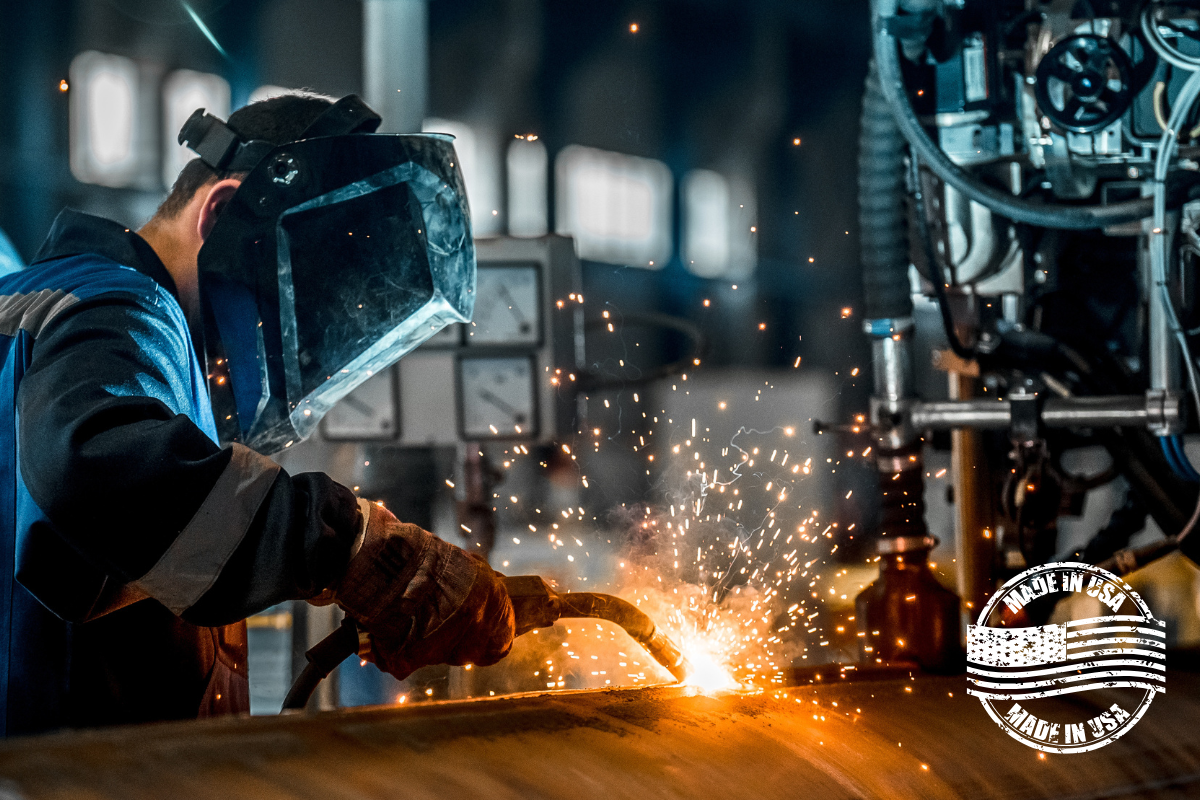Proudly American: Designed and Assembled in the USA — The Austin Hardware Difference
The Strategic Role of Chemical Products in Bus and RV Manufacturing
Topics: Austin Engineered Solutions™, rv, adhesives,sealants,chemicals, Bus & Motorcoach
Products that Enhance Trailer Safety – National Trailer Safety Week.
Topics: Austin Engineered Solutions™, Trailers, Safe Assist
Celebrating 65 Years of Innovation and Service at Austin Hardware
Celebrating 65 Years of Innovation and Service at Austin Hardware
This year marks a significant milestone for Austin Hardware as we proudly celebrate our 65th anniversary. Since our founding in 1960, we have evolved from a small parts supplier into a nationwide leader in industrial hardware distribution and engineered solutions. Our journey has been characterized by continuous innovation, strategic expansion, and a strong commitment to serving our customers across various industries.
It all began in 1960, when we were established as Austin Truck and Trim Supply, with a clear mission: to bridge the gap between vendors and OEMs. In 1965, we rebranded as Austin Hardware & Supply, Inc., reflecting our expanding product offerings and customer base.
The Growth of our Team
By 1998, Austin was recognized not only for distributing hardware but also for providing customized solutions to meet evolving customer needs. We continued to grow strategically, acquiring Thomas Hardware in 2000 and JPC Fasteners in 2007. That same year, we expanded to nine locations and started offering vendor-managed inventory and engineering services, which are key steps toward becoming a full-service partner.
As our customers’ business needs have changed, we’ve adapted as well. Over the past five years, we’ve enhanced our team with experts in chemicals and fastening products to provide our customers with essential support in these areas. Coincidingly, we’ve expanded our line of chemical products with additional sealants, adhesives, corrosion protection, and environmentally friendly industrial-grade cleaners.
We also continue to enhance our VMI programs, now supported by eTurns TrackStock, making VMI more efficient and enabling data-driven decision-making. Our product lines now include many products typically found in VMI programs. We have an expanded line of MRO and safety products, along with fasteners, allowing Austin to be a true one-stop source.
VHB Tapes: Key Features, Benefits, and Applications for Stronger, More Durable Bonds
VHB Tapes: Key Features, Benefits, and Applications for Stronger, More Durable Bonds
Few products rival the versatility of VHB (Very High Bond) tapes for reliably and efficiently joining materials. Developed by 3M in 1980, VHB tapes have transformed how industries approach fastening and assembly. Whether constructing skyscrapers, assembling electronic devices, or enhancing vehicle designs, VHB tapes provide a clean and robust bond. They can complement or even substitute mechanical fasteners and liquid adhesives in specific applications.
Key features of VHB tapes include high bond strength, flexibility and conformability, weather and chemical resistance, a clean appearance, and user-friendliness.
VHB tapes create strong, permanent bonds. They can join various materials—such as metals, plastics, and glass—with strength comparable to rivets, welds, and screws. The foam-like structure allows VHB tape to absorb shock and vibration. It also conforms to uneven surfaces, ensuring complete contact and a consistent bond.
Topics: adhesives,sealants,chemicals
Maximizing Efficiency with Vendor Managed Inventory and eTurns TrackStock for High-Turn Items
Topics: Vendor Managed Inventory, inventory management, fasteners
Enhancing EMS Equipment with Gas Springs: A Vital Component for Efficiency and Safety
Enhancing EMS Equipment with Gas Springs: A Vital Component for Efficiency and Safety
In the fast-paced world of Emergency Medical Services, efficiency and reliability are critical. Every second counts in life-or-death situations, and first responders depend on equipment that operates smoothly and effectively. One often overlooked but essential component of EMS equipment is the gas spring. These simple yet powerful devices are crucial for ensuring seamless operation, safety, and ease of use in various applications within the EMS industry.
The Role of Gas Springs in EMS Applications
Gas springs, commonly known as gas struts or gas shocks, play a crucial role in medical equipment management by offering precise control of motion, minimizing physical effort, and maximizing safety. These innovative devices are engineered to assist in lifting, lowering, and securely holding objects in position, making them indispensable in the EMS industry. Their ability to provide smooth and reliable operation not only enhances the efficiency of medical professionals but also ensures the safety of both patients and staff.
Topics: Austin Engineered Solutions™, ems solutions, gas springs
Powering Renewables: How Vendor-Managed Inventory Enhances Supply Chains for Solar and Wind Energy
Powering Renewables: How Vendor-Managed Inventory Enhances Supply Chains for Solar and Wind Energy
The renewable energy sector is rapidly growing as the world shifts toward cleaner and more sustainable energy sources. However, this growth presents logistical challenges, particularly in managing the supply chain for essential components. Vendor-managed inventory (VMI) is emerging as a transformative solution for optimizing supply chains in solar and wind energy projects. VMI ensures that critical materials are consistently available while also reducing costs and inefficiencies.
Topics: Vendor Managed Inventory, Austin Hardware® News, Innovative Solutions, Renewable Energy
Enhancing Acoustic Performance in Truck Bodies and Trailers with Chemical Solutions
Enhancing Acoustic Performance in Truck Bodies and Trailers with Chemical Solutions
The truck body and trailer industry has traditionally focused on enhancing durability, aerodynamics, and fuel efficiency. However, an increasingly significant aspect of vehicle design is acoustic performance. Reducing noise improves driver comfort, decreases noise pollution, and protects cargo. To achieve these acoustic enhancements, manufacturers now utilize advanced products specifically designed to dampen, absorb, and insulate against sound.
Benefits of Acoustic Enhancements in Truck and Trailer Design
Investing in acoustic solutions products offers several significant benefits, including improved driver comfort and enhanced cargo protection. Lowering in-cabin noise levels helps reduce fatigue, improving the driver’s comfort and overall driving experience. Additionally, reducing vibrations protects fragile or noise-sensitive goods, such as electronics, glassware, and livestock, from damage.
Topics: trucks, adhesives,sealants,chemicals
Enhancing Agricultural Equipment Performance with Sealants & Adhesives
Enhancing Agricultural Equipment Performance with Sealants & Adhesives
The Role of Sealants & Adhesives in Agriculture
Agricultural equipment operates in some of the harshest environments, facing extreme temperatures, heavy moisture, dirt accumulation, and mechanical stress. Over time, these conditions can cause wear and tear, compromising the efficiency, safety, and longevity of essential machinery.
Topics: Austin Engineered Solutions™, Ag












